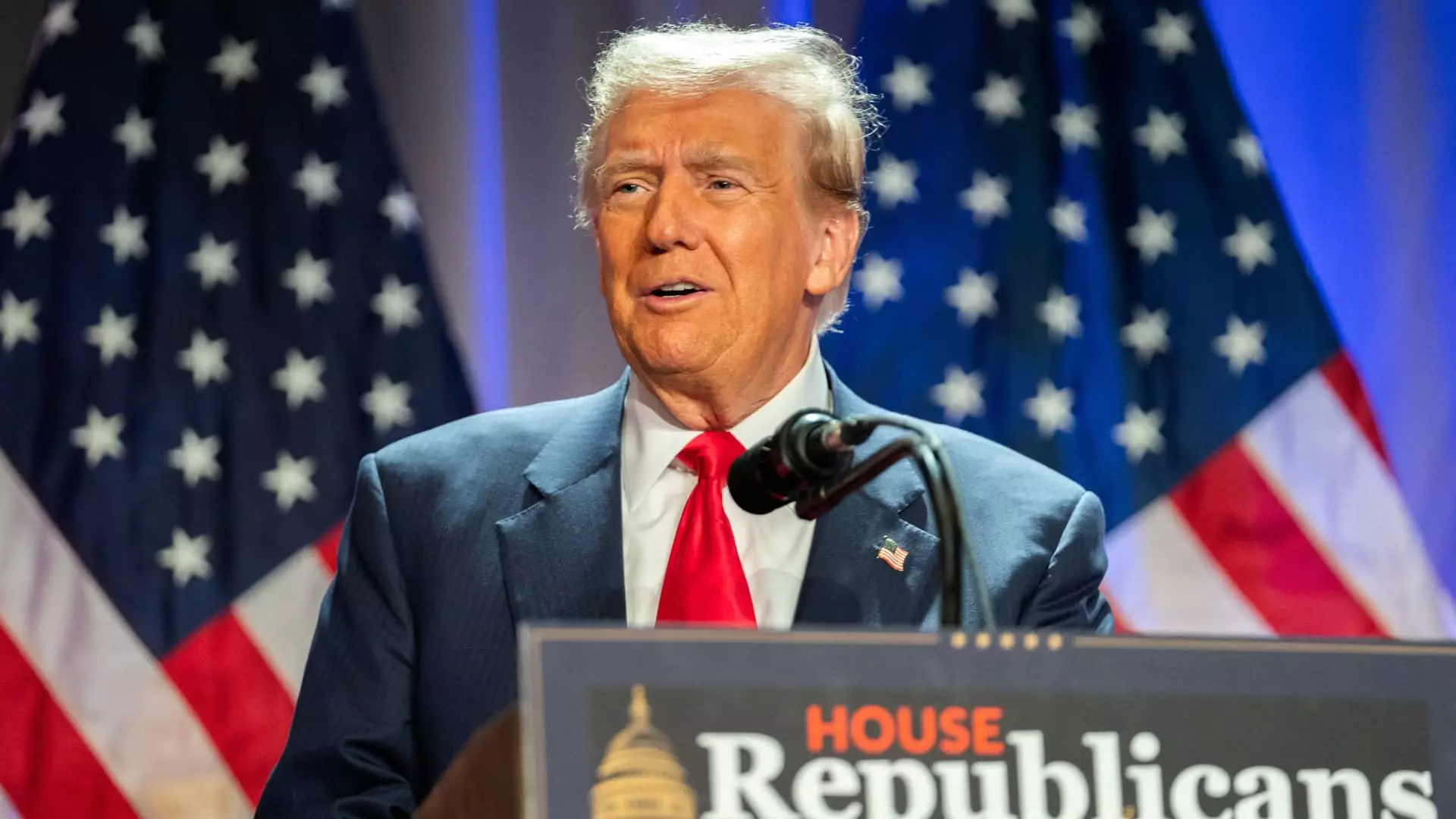The landscape of tax legislation in the United States is set for significant shifts as congressional lawmakers prepare to tackle a series of expiring tax breaks alongside new tax proposals from President-elect Donald Trump. While Republican lawmakers enjoy a majority in both the House of Representatives and the Senate, translating that political leverage into effective policy faces a multitude of challenges. This article aims to dissect the complexities of the upcoming legislative struggles surrounding tax reform and the implications for the broader fiscal environment.
The process of budget reconciliation offers a unique pathway for the Republican majority to implement sweeping tax reforms without the threat of a Senate filibuster. This parliamentary procedure can streamline the legislative process significantly, allowing the majority party to push through budget-related measures with reduced debate. However, the potential for intra-party conflict is palpable. Despite a unified Republican front, lawmakers will likely find themselves navigating a web of competing priorities that reflect the diverse needs of their constituents.
As Howard Gleckman of the Urban-Brookings Tax Policy Center pointed out, legislators represent their districts rather than strictly adhering to party lines. This could complicate consensus-building as different factions within the Republican Party come to the table with varying — and sometimes conflicting — priorities. The fundamental challenge remains whether these representatives can align their interests despite the broader goals set forth by the administration.
One of the most pressing issues Congress faces is the impending expiration of several key provisions from the Tax Cuts and Jobs Act (TCJA), enacted in 2017. Without renewed legislative action, tax cuts comprising trillions of dollars are set to lapse after 2025. Important elements on the chopping block include reduced tax brackets, increased standard deductions, and enhanced child tax credits. For many middle-class families, these tax changes are essential for maintaining their economic stability.
Amid this legislative chess game, Trump’s campaign rhetoric suggested ambitious reforms aimed at altering the tax landscape further. Proposals such as eliminating taxes on Social Security benefits, introducing an auto loan interest deduction, and instituting universal tariffs pose both opportunities and risks. While these ideas may invigorate segments of the economy, they also introduce a wider array of issues for lawmakers who might be unwilling or unable to support such sweeping changes.
In practical terms, navigating the crowded agenda for tax reform means negotiating a plethora of competing interests even among fellow Republicans. Molly Reynolds, a senior fellow in governance studies at the Brookings Institution, highlighted how attempting to integrate too many proposals could exacerbate political divisions. The task at hand includes not just tax modifications, but a broader spectrum of fiscal policies encompassing government funding and budgetary constraints.
Congress faces a critical deadline by December 20 to fund the government and prevent a shutdown. If not met, stopgap measures could delay these tax discussions into early 2024, which may prolong uncertainty around the implementation of tax cuts. Such a scenario would not only frustrate GOP lawmakers but might also trigger discontent among voters who are keenly watching developments that directly impact their financial situations.
Given the numerous hurdles that lie ahead, experts express skepticism about the timeline for passing tax reforms. Gleckman argues that while ambitious timelines for implementation may be wishful thinking, a more realistic expectation places the potential for new tax legislation closer to the end of 2025. In contrast, other experts suggest a window of opportunity could lie as early as the fiscal year deadline of October 1, 2025.
As both parties brace for contentious negotiations, the political fallout from tax reforms looms large. With an electorate that is largely divided, navigating these negotiations will require more than just legislative horsepower; it will also demand an acute understanding of the constituents’ needs. Indeed, the complexity of these discussions serves as a reflection of broader societal divides, underscoring the need for leaders to prioritize collaboration over partisanship. The success of tax legislation may well depend on the ability of lawmakers to transcend traditional political barriers and forge paths toward achievable compromises.


Leave a Reply